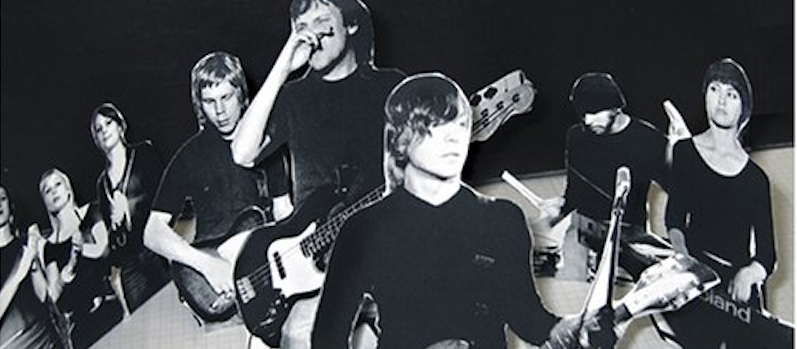We all know what we mean when we say “lo-fi singer-songwriter,” right?
There’s the obvious checklist: the do-it-yourself recording techniques, the fuzzy or half-amped guitars, the way passion outstrips production when the lone performer belts out a verse or finds a pop hook cleverly hidden in a chorus packed with tape hiss. These outings are typically hit or miss affairs, collections appropriately judged on the strength of songwriting chops or their invention, no matter how clouded those features might be from aesthetic blemishes.
Well, In Direct Communication, the latest offering from Unknown Component – a.k.a Iowa-based singer-songwriter Keith Lynch – is both a hit and miss affair.
There’s plenty to love on this 10-track collection, for which Lynch wrote, recorded and provided cover art. (Word is still out whether he crunched together the polymers to form the jewel cases.) The choppy guitars of “It’s A Fine Line,” which dodge from the listener’s left to right, play perfectly off his vocals, which can hint at pop molds as much as punk’s sneer. The ballad “On Your Mind” offers not only tender acoustic guitars but swelling Faith No More synth washes and a great bridge where Lynch appears to sing, “There’s no survival/ It’s just time and it’s on your mind.” The moody “Somewhere A Light Has Gone Out,” with its piano motifs and whistling, musical saw-style synths, could be a Black Heart Procession outtake. (He even nailed the title.)
But, elsewhere, Lynch falters. Over the course of nearly 38 minutes, he layers harmonies over poppy choruses (“Retrospectively Speaking”), experiments a little with lead-singer reverb (“Between Guilt and Relief”) and tries to crank up the volume with distortion (“Identifying Interpretation”) but much of the record feels monochromatic or one-dimensional. Maybe it’s the recording or the lack of variation — jangly guitars and subtle bass over electronic percussion, rinse, repeat — but it feels wanting. One wishes Lynch, who clearly has some songwriting and performing talent, would really shake up things, get the blood flowing, take more chances.
The record ends not with a somber ballad or a pop pseudo-anthem but with a few rays of sunshine – the upbeat “Never Ceases To Remain Unchanged” and “The Inconsistent System.” On the latter, cascading guitars give way to Lynch’s vocals as he pleads, “So don’t give up/ Don’t give up/ Don’t give up/ Don’t give up.” Let’s hope he heeds his own advice.




